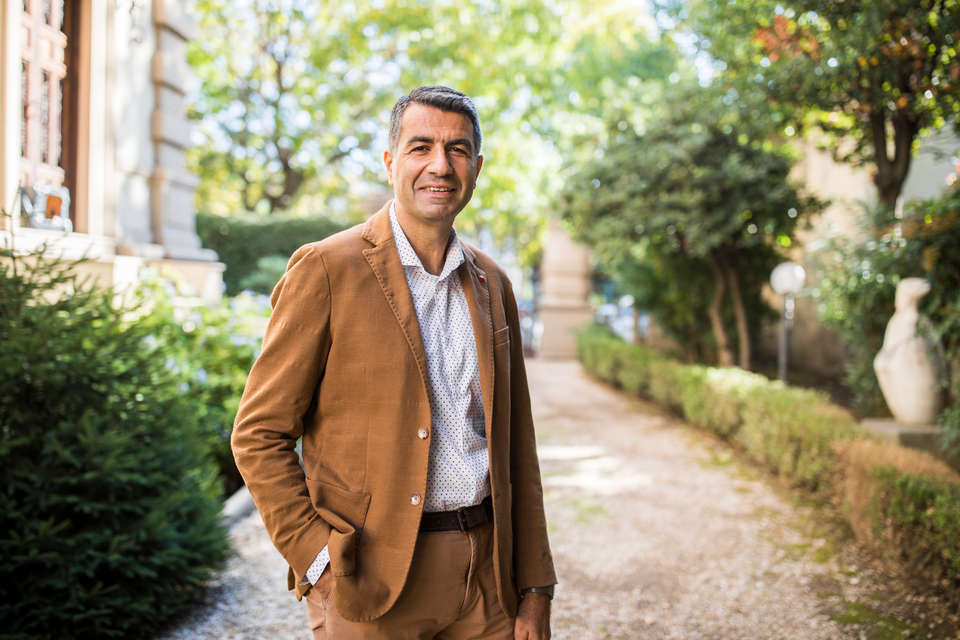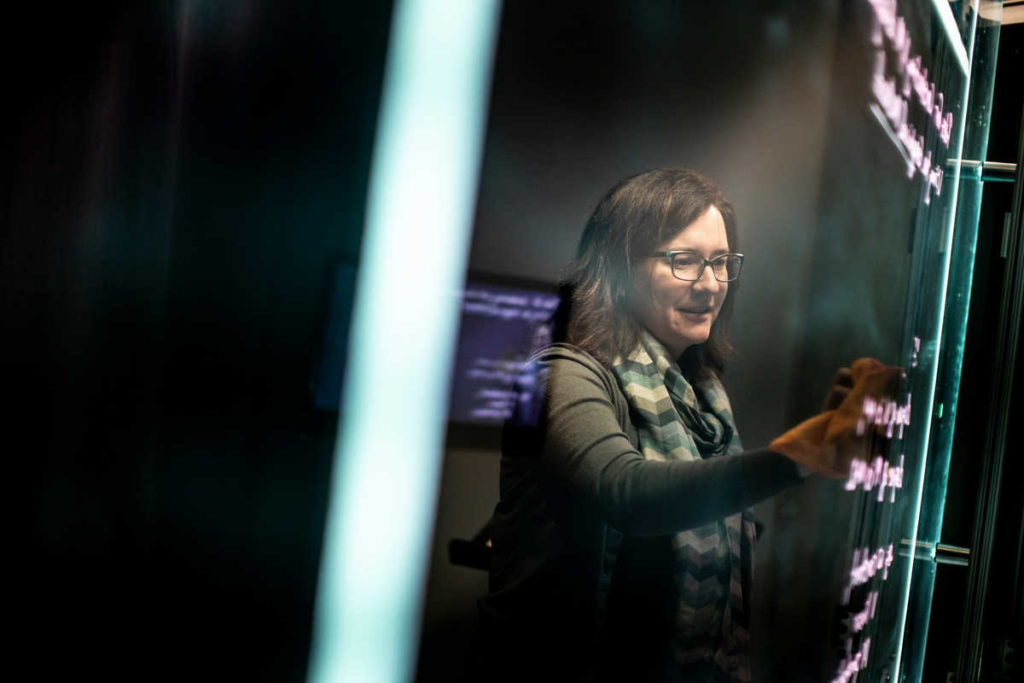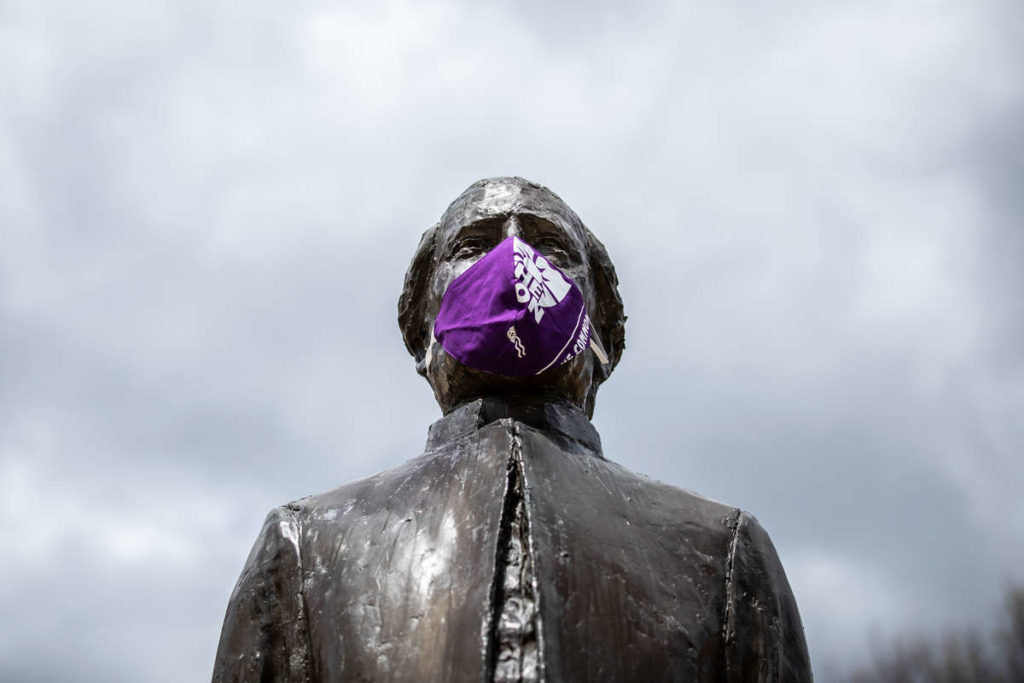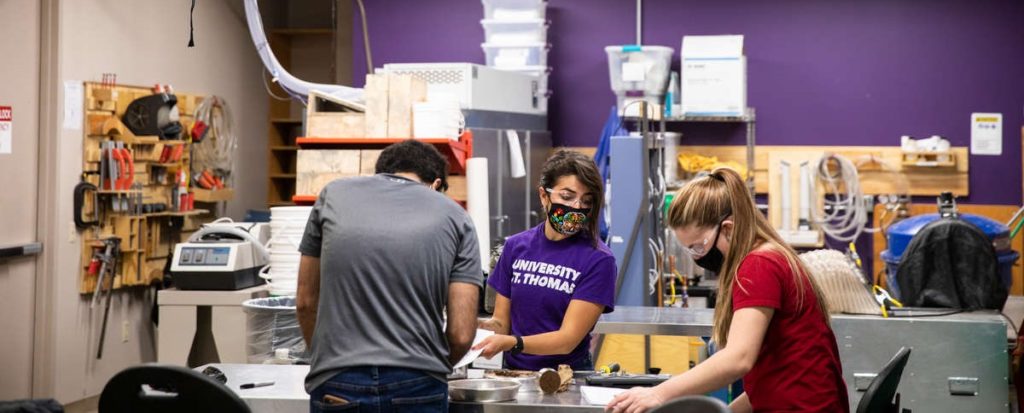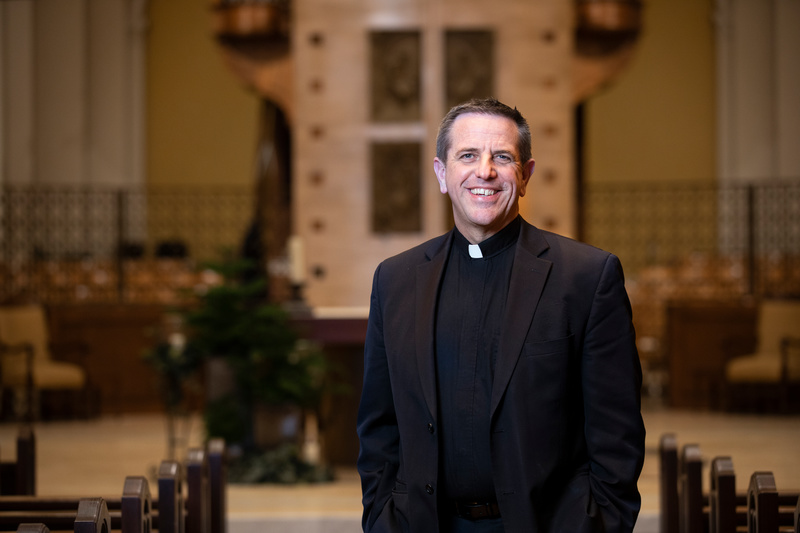Thanos Zyngas has called Rome his home since 2003, when he took a “once in a lifetime” opportunity to become the Bernardi Campus director for St. Thomas. For the past 18 years Zyngas has helped create a dynamic, rich learning experience for hundreds of St. Thomas students.
Today, Zyngas lives on a Bernardi Campus that looks and feels drastically different than it ever has before: The decision was made Feb. 28 to close the campus, cancel the rest of the spring semester and send students home, which all did by March 4. In the weeks since, the infection rates and loss of life in Italy from COVID-19 have risen dramatically, sending the entire country into lockdown as it battles an unprecedented pandemic.
We spoke with Zyngas on March 24 about what it feels like to live in Rome right now, what lessons have been learned about the response to the outbreak, and the competing emotions of optimism and sadness during the ongoing situation. The conversation has been edited and condensed.
What has it been like to live in Rome these past weeks and months?
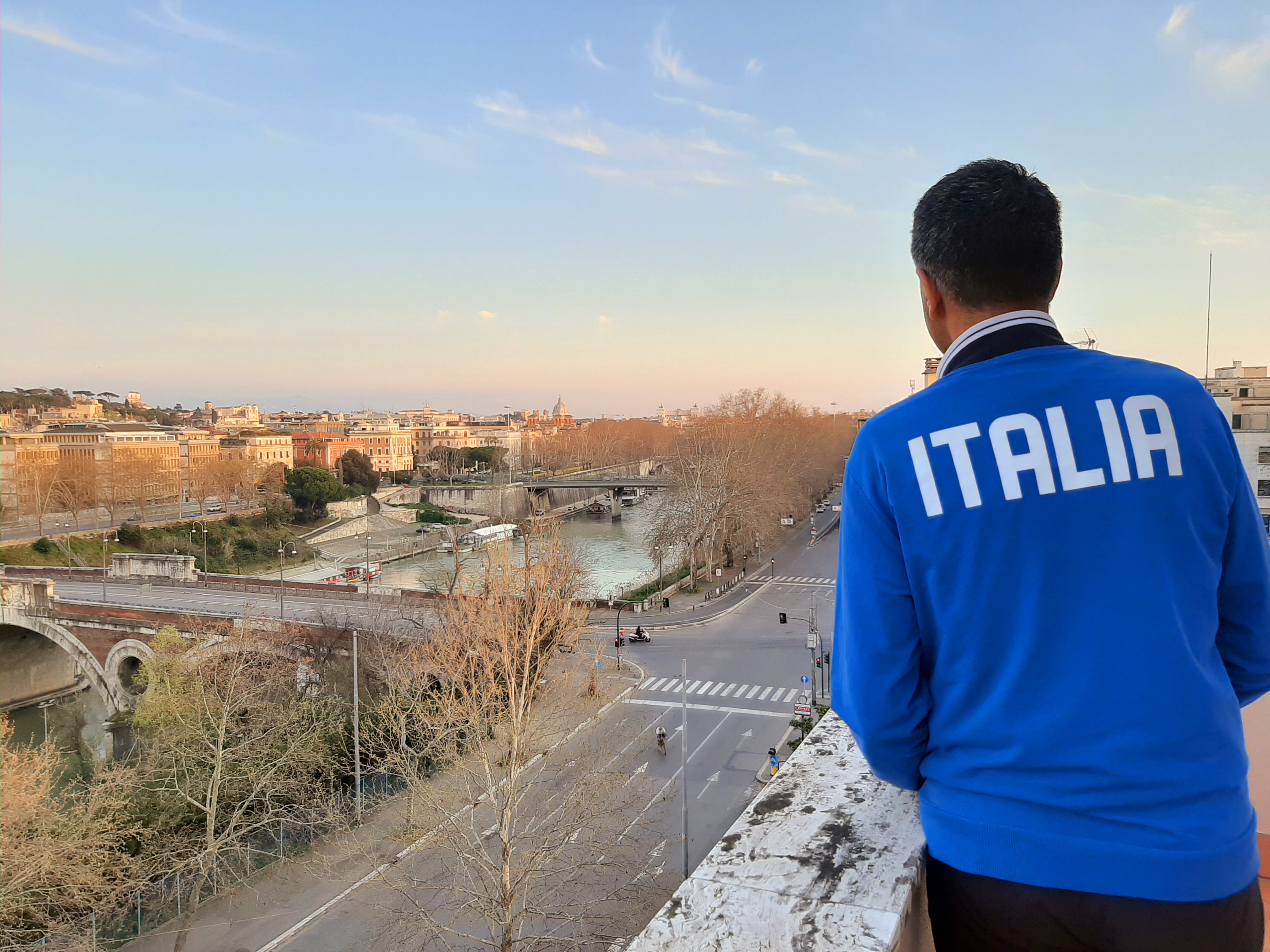
Thanos Zyngas looks out from the terrace of the Bernardi Campus in Rome.
The last group left Bernardi on Wednesday, March 4. Back then, things were still evolving and the cases were going up day by day. Who would have predicted a few weeks later we would reach 60,000 cases? The last three weeks have been life-changing for me, as well, going from an extremely busy lifestyle, having students around, doing all kinds of things … to really slowing down. Not being able to plan, to create, to work like I used to work before in the midst of talking with students, the life here on campus has been very hard.
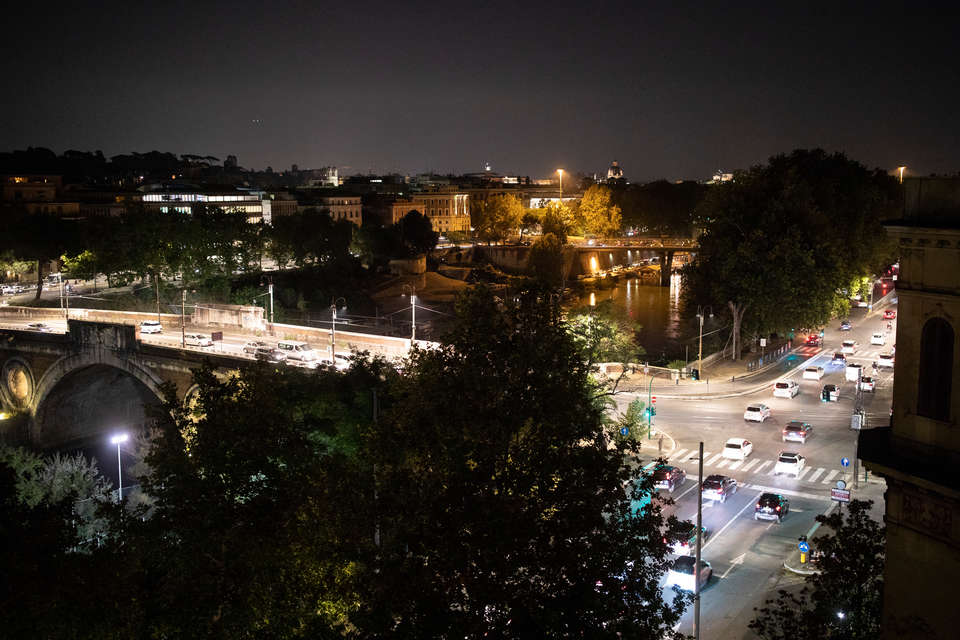
A nighttime view from the rooftop of the Bernardi Campus building, featuring the River Tiber, in Rome, Italy, as seen on Oct. 14, 2019.
I imagine living through all those changes, especially across the country, it’s almost like being in a pot of water as the heat goes up, so you feel it gradually changing.
The first day, people would walk on their balconies, sing songs; the next day give a big round of applause to doctors; third day do this or that. This was something new for everybody. Especially for Italians; we are used to being out and about, filling up the squares, going out to restaurants, the streets filled with cars and scooters. Life. Having to be on lockdown was pretty shocking and that’s why the first week there were many violations of the decree that came out that didn’t allow us to go out. The second week, the week of the 16th, there were no more of those songs, those applauses. The mood of people changed. The numbers, especially in the north part of Italy, were going higher. The death of people, all those images that the whole world has seen. They were shocking to all of us. There were no more songs, applauses, banners, because it seemed there was no hope. It was a sign that we have to stay home. Personally, I took it as, ‘This isn’t going to end soon; I need to get used to this being the new way of living and learning.’
I know things will not be the same when we come out of this tragedy. A lot of things will change. I hope things will change for the better, for humanity.
As you’ve had a chance to look back at how the past month-plus has played out, have you thought about anything in terms of what could have been done differently?
In terms of our campus and students, when the first couple of cases surfaced in Italy on Feb. 21, it was a Friday. Over that weekend, from 14 cases on the 21st, jumped to almost 100 by that Sunday, Feb. 23. Even back then, I recall, I got in touch with people on the home campus, high-level administrators … and we took an aggressive measure to send the students back home when other programs were not thinking to send the students back home or to cancel excursions in March. From my experience, seeing and watching the news, being aware, listening and paying attention to what was going on, I knew this would not slow down. … I was getting information from the U.S. Embassy here in Rome of the restrictions that gradually were going into effect. That was the cue that this situation was not slowing down. Other programs were planning trips still; I thought, ‘No, this is going to get worse.’ I was torn. Is it possible to shut down Bernardi and send the students back home? We just started and things were going great. By that Friday, Feb. 28, the decision was made to send them home. We took very aggressive measures to protect the students, to make sure they wouldn’t get caught into the mess that followed later. … We wanted whatever measure we could to get them home safe, and everything else would come later.
As I’ve seen the situation evolving so rapidly then and since, I’ve been saying to friends around the world: ‘Stay at home. This is not something to not take seriously.’
I imagine there was a lot of relief as the students were getting back home safely?
Absolutely. I couldn’t wait to receive that message from them on WhatsApp, that they’re back home safely.
You mentioned earlier the optimism and hope that comes with some downturn of the numbers, some signals there might be progress being made. How have those emotions sat alongside the sadness that I’m sure is so profound as this tragedy continues unfolding?
I can only take day by day. Unfortunately, me and many other colleagues or friends, it’s impossible to plan ahead or know what’s coming because of the unknown. For me, personally, it’s important to stay healthy, stay safe, do as much to protect myself and others by following the directives of the government to get through this as soon as possible. With that glimmer of hope yesterday, the numbers not going up … that makes me very happy, but there’s still that unknown.
For me, in reflecting on all this, I have to reset everything and start from zero. As long as I have my health and I’m safe, then I can work on whatever it takes to get things back on track. If we reach that point and I have the energy and am fine, I cannot wait to get my hands dirty again and start from zero and see how we can build up ourselves to a new lifestyle, which it will be. You know that Italians are people who embrace each other, hug each other, are very affectionate. How will this social distancing impact our daily life? As long as we get out of it, everything else can be remedied and be fixed, and hopefully for the better.
I’ve learned many lessons through this pandemic. Not to take everything for granted. The most important thing we have to protect is life and the people we love. Everything else is secondary.
What else has been on your mind as this continues to be the reality for you and other Romans?
There is sadness. There is real sadness talking with you, what I shared, and trying not to get emotional about the way things evolved. Looking back, this month, I will never forget. I remember the happy faces of the students, how positively the semester had begun, and how quickly we had to get them out.
I hope everybody does some reflection in the sense of appreciating what they have and where they are. It is very, very important to have that personal reflection and look around with the people you love, and hopefully spread that feeling of optimism. At the same time, to have that reflection that, ‘My life will be different coming out of this, hopefully safe and healthy; what do I want to do to make myself a better person than I was before? How can I make a positive difference in this world that has changed?’ The world has changed and will continue to in the days and months that go by. Who do you want to be as part of that?
